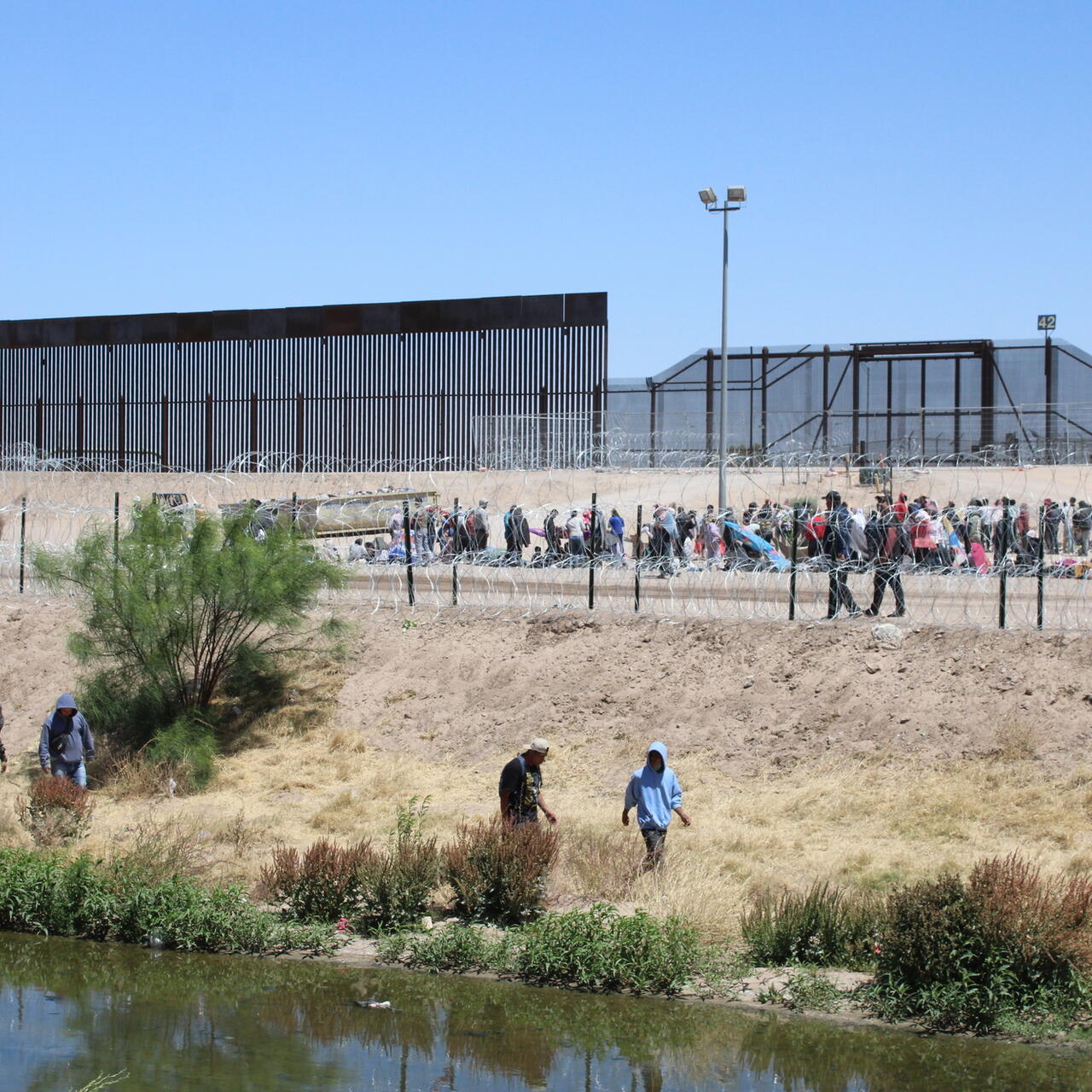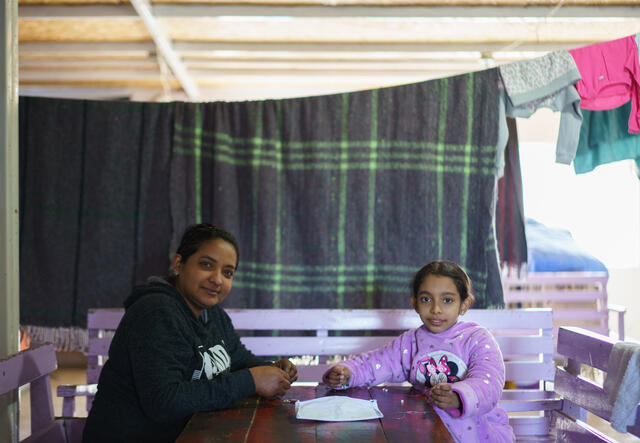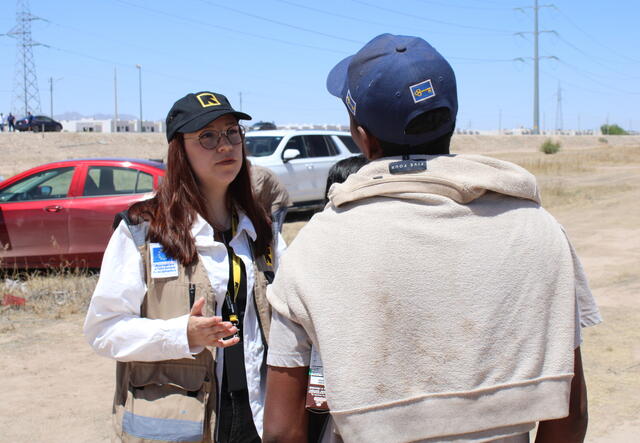
How can I help asylum seekers at the US-Mexico border?
Find out how you can help people seeking safety at this critical moment.

Find out how you can help people seeking safety at this critical moment.
Title 42, a Trump-era policy that restricted access to asylum for countless people fleeing danger, ended on May 11, 2023. Shortly thereafter, the Biden administration introduced an ‘asylum ban’ that bars asylum seekers who crossed through another country on their way to the southern U.S. border, unless they have previously applied for, and been denied, asylum elsewhere or managed to receive an appointment at a port of entry through a U.S. government app for smartphones.
The “Asylum Ban” remains in place despite an initially successful legal challenge.
On June 4, 2024, President Biden announced a new executive order that further limits the legal right to seek safety at the southern border and weakens refugee protection standards in violation of U.S. law. This executive action is counterproductive to a humane, safe and orderly asylum system. An update to this measure was announced on September 30, 2024, extending asylum restrictions and making them more difficult to unwind.
People who come to the U.S.’ southern border have left their home in search of safety, escaping conflict, violence and persecution. They have also been forced to take long and dangerous journeys to get there.
Restrictive policies rob many asylum seekers of a fair chance to present their cases and leave them effectively stranded in northern Mexico, exposed to more dangers and without adequate food or housing.
The United States has a long, proud tradition of giving families fleeing conflict and persecution a chance to rebuild their lives in safety.
Read on to find out how you provide critical support for people in need right now.

Seeking asylum is legal. No one should be penalized, returned to harm or separated from their children for exercising this right.
Urge President Biden to protect the rights of asylum seekers.
Make a donation to ensure that IRC can continue to provide critical support to asylum seekers on both sides of the U.S. southern border, including the IRC’s Asylum and Crossborder programs, which served nearly 50,000 people in need of protection in the U.S., with a warm welcome, case management and emergency assistance in fiscal year 2023 alone.
In Latin America, the IRC serves individuals and families who are at risk of violence and displacement in northern Central America and along the main migration corridors in Mexico, from the southern to the northern borders. We deliver a variety of services across the region, including preventing and responding to gender-based violence, safe spaces for women and girls, economic recovery and development services, case management, psychosocial support and health care through our emergency mobile medical unit.
We have also launched critical information services for asylum seekers and vulnerable communities: InfoPa’lante in Colombia, CuéntaNos in northern Central America and InfoDigna in Mexico are all part of our global Signpost project with partners including Mercy Corps, Google, Microsoft, Twilio, Cisco, Tripadvisor and Box. The digital platform includes an interactive map that connects asylum seekers and other displaced people to shelters, health care providers and other services. An additional service, ImportaMi, serves unaccompanied children who recently arrived in the U.S.

The IRC in Arizona's Phoenix Welcome Center, for instance, helps parents and children seeking refuge in the United States to find safety and stability as they await their asylum hearings.
Find out more here.
Show your support for asylum seekers by sharing this post on Instagram on X. You can also get the facts on asylum in the U.S. and share with your friends and family.
“The evidence from around the world is that cruelty is not the route to order. In fact some of the most cruel solutions produce disorder and empower people smugglers,” said David Miliband, IRC President and CEO. “By contrast, there are policies which are both humane in treating refugees with dignity, and orderly in the way they promote effective management of migration.”
The U.S. must invest in more humane, sustainable systems at the border.
Learn more about what’s happening at the U.S. southern border and what the IRC is doing to help.